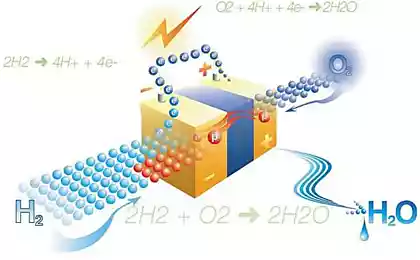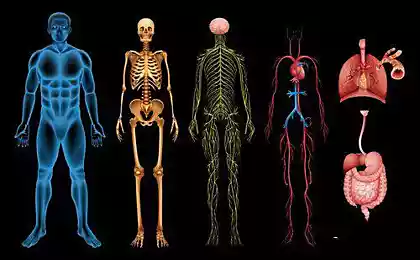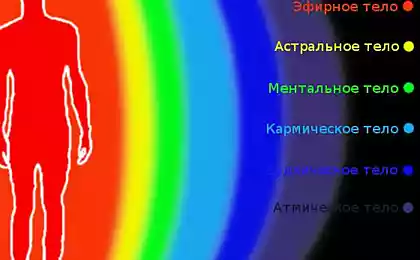691
All that is going through Soul, the Body makes visible
The term "stress" was introduced by canadian scientist Hans Selye, borrowing it from the strength of materials. Stress is pressure, tension caused due to the impact of the environment on an object and means of fatigue of the material caused by this stress. Since then, the word "stress" has become an international means a certain psychophysical state of a person. Can long to attempt to define "stress", but one thing you can say for sure that "stress" is a state opposite of peace.
So, what is stress?
Stress is adaptive reaction of the organism to changes in the environment to which the organism was not ready.
Stress is necessary. They teach organisms to adapt to new, often extreme situations, help to survive, mobilizing their forces, enrich the new experience.

First and foremost, on a strong signal answer the nerves in our body, for which this signal is transmitted to the brain. The brain processes the information, decides on responses and, again the nerves, the command is sent to certain bodies.
As strong stimulus stimulates the pituitary gland, which secretes adrenocorticotropic hormone. This hormone along with blood entering the adrenal gland, encourages them to release of adrenaline, which in turn stimulate the heart, increase blood pressure and stress of large muscles. The body is ready or to flee from danger or to fight.
The same Hans Selye observed that stress causes three reactions to prolonged exposure to:
1. mobilization of all reserves of the psyche. The body rebels against negative emotions.
2. addictive, i.e. resistance to stress.
And if the load continues, the
3. nervous and physical exhaustion, which causes a sharp weakening of the whole organism.
(For example, try to clench your fist as hard as you can and stay like that for a while. Soon You find that a clenched fist usual state and it can stretch even more, etc.)
To stress first of all respond to our vessels, their walls are narrowing and vasospasm at the time of extreme nervous tension can lead to a sharp increase in blood pressure, disruption of cardiac activity or even cardiac arrest.
For example, a stomach ulcer or 12-duodenal ulcer caused by the pressure of the whole body, which causes spasm of blood vessels in the walls of the stomach and local violation of blood circulation of the mucous membrane. Dropping her resistance to increased secretion of gastric juice and its acidity. Gastric juice irritates the mucous membrane, so there is ulcer.
Under the influence of any stress, the brain releases into the blood a stress hormone that prolonged exposure leads to the disruption of:
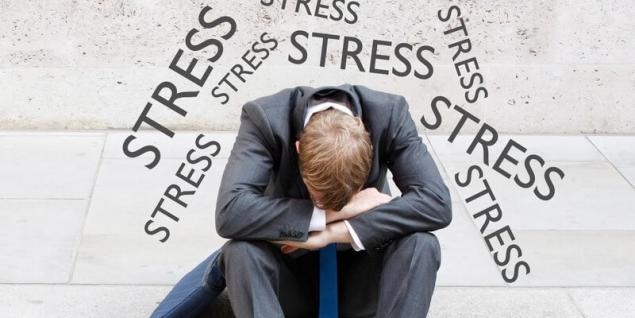
Often people in a state of stress behave as if they do not breathe: take deep breaths, yawn. The reason for this is the dysfunction of the diaphragm, which can be seen on x-ray, if to provoke the patient's stress as some unpleasant conversation.
Prolonged stress lowers the body's resistance to disease. Immune system responsible for mobilizing the body's defenses, weakening. In the blood decreases the number of lymphocytes needed to combat bacteria, viruses,
tumors.
Increases the risk of disease and even death. The most dangerous weakening of the immune system found in humans, is experiencing a strong connection with death of loved ones.
Emotional effects of stress — anxiety, sleep disturbance, memory and ability to focus.
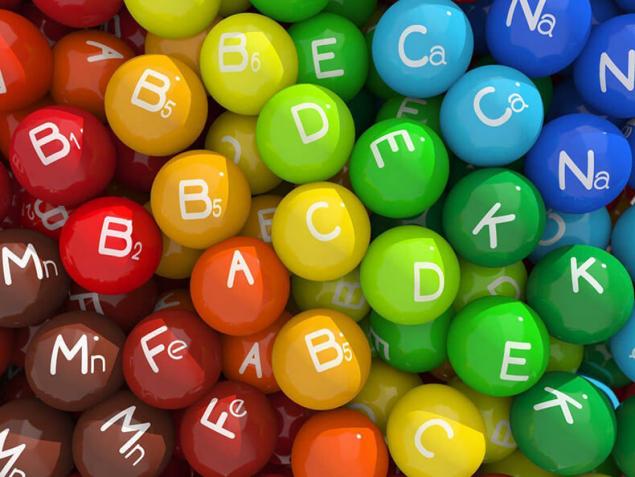
In severe cases, depression.
What we eat and drink is crucial to the body's resistance. And, therefore, affects the resistance to stress.
Vitamin B1 — neutralize emotional instability. Contained in yeast, cereals, organ meats and black bread, destroyed by the abuse of alcohol, white bread and coffee.
Vitamin B5 — helps to overcome fatigue caused by nervous tension. Has a calming effect on the adrenal glands, preventing excessive release into the blood
adrenaline as a result of stress.
Vitamin B6 — alleviates symptoms of stress. Used with drugs containing magnesium.
Vitamin C — reduces nervousness and tension.
In addition, the state of emotional tension "buffer" chromium, zinc, lithium and magnesium.
Medicine believes stress is a physiological phenomenon, something resembling a spasm of the blood vessels, we would feel sudden palpitations, heaviness in the stomach, dry throat, muscle tension. When stress becomes permissible limits, can become seriously ill.
Disturbed sleep, weakened memory, weakened body stick all diseases.
The world health organization calls stress the disease of the century. Stress cannot be avoided cavity, however, you can minimize its negative impact.

It is important to remember that all that is going through the Body makes the Soul visible. Each takes possession of us the feeling is reflected on our body.
The idea is having an active effect on the body at the moment, including chemical and muscular reactions.
Good memories lead to the release of endorphins, hormones and endocrine glands that create pleasant feelings and bad thoughts to the release of toxins.
And all this is happening in the present.
First tip: Choose for yourself a pleasant thought, and it will help You to get rid of many problems.
Remember: thoughts, emotions, physical activity, food, environment, people, and more — that the natural sources of stress.
L/S correction will help You to relieve the stress caused by the source of stress. One hand is placed on the forehead, the other on the head. Exercise combined with deep breathing. This exercise is taken from life. You do notice when a man is hard, he puts his hand on his forehead, unconsciously touching the points output of stress, which are under frontal humps. this exercise helps to restore the circulation of the brain and to the problem to see consciously.
Also deep breathing is an ancient method of dealing with stress, allows you to relieve anxiety, to balance the work of the autonomic nervous system, stimulates the immune system, and in itself helps to eliminate toxins.
Talking today about stress, I would like to note a positive role of stress in our lives. The nervous feelings often help to maintain the tone, fills life with meaning. Without such stimulation can be easy to lose interest in everything.
To read and understand: the Biochemical analysis of blood — Norma and decodingMichael Grothaus: As a rejection of the sugar has changed my life
Good stress causes a positive change in the body. A successful exam, a successful trip can be called a victory, it's a great example of good stress. Victory — the feeling of mastering a difficult situation.
Physiologically good stress is characterized by the production of such stimulants as endorphins, sex hormones.
It is very important that our emotions have balanced negative and positive moments.published
Source: www.kineziology.ru/readarticle.php?article_id=8
So, what is stress?
Stress is adaptive reaction of the organism to changes in the environment to which the organism was not ready.
Stress is necessary. They teach organisms to adapt to new, often extreme situations, help to survive, mobilizing their forces, enrich the new experience.

First and foremost, on a strong signal answer the nerves in our body, for which this signal is transmitted to the brain. The brain processes the information, decides on responses and, again the nerves, the command is sent to certain bodies.
As strong stimulus stimulates the pituitary gland, which secretes adrenocorticotropic hormone. This hormone along with blood entering the adrenal gland, encourages them to release of adrenaline, which in turn stimulate the heart, increase blood pressure and stress of large muscles. The body is ready or to flee from danger or to fight.
The same Hans Selye observed that stress causes three reactions to prolonged exposure to:
1. mobilization of all reserves of the psyche. The body rebels against negative emotions.
2. addictive, i.e. resistance to stress.
And if the load continues, the
3. nervous and physical exhaustion, which causes a sharp weakening of the whole organism.
(For example, try to clench your fist as hard as you can and stay like that for a while. Soon You find that a clenched fist usual state and it can stretch even more, etc.)
To stress first of all respond to our vessels, their walls are narrowing and vasospasm at the time of extreme nervous tension can lead to a sharp increase in blood pressure, disruption of cardiac activity or even cardiac arrest.
For example, a stomach ulcer or 12-duodenal ulcer caused by the pressure of the whole body, which causes spasm of blood vessels in the walls of the stomach and local violation of blood circulation of the mucous membrane. Dropping her resistance to increased secretion of gastric juice and its acidity. Gastric juice irritates the mucous membrane, so there is ulcer.
Under the influence of any stress, the brain releases into the blood a stress hormone that prolonged exposure leads to the disruption of:
- Heart (tachycardia, increase of ADD, stroke, heart attack)
- Stomach
- Gallbladder, liver
- The digestive tract (stomach ulcers and 12-duodenal ulcer, indigestion, irritation of the colon)
- Adrenal gland (adrenaline)
- Kidney
- Genital organs in women (blockade of ovulation, menstrual cycle, infertility on the basis of nervous or mental disorder, inflammation of the bladder)
- Men have (difficulty with erection, decreased activity of sperm, premature ejaculation)
- Skin (eczema, hives, psoriasis, acne)

Often people in a state of stress behave as if they do not breathe: take deep breaths, yawn. The reason for this is the dysfunction of the diaphragm, which can be seen on x-ray, if to provoke the patient's stress as some unpleasant conversation.
Prolonged stress lowers the body's resistance to disease. Immune system responsible for mobilizing the body's defenses, weakening. In the blood decreases the number of lymphocytes needed to combat bacteria, viruses,
tumors.
Increases the risk of disease and even death. The most dangerous weakening of the immune system found in humans, is experiencing a strong connection with death of loved ones.
Emotional effects of stress — anxiety, sleep disturbance, memory and ability to focus.

In severe cases, depression.
What we eat and drink is crucial to the body's resistance. And, therefore, affects the resistance to stress.
Vitamin B1 — neutralize emotional instability. Contained in yeast, cereals, organ meats and black bread, destroyed by the abuse of alcohol, white bread and coffee.
Vitamin B5 — helps to overcome fatigue caused by nervous tension. Has a calming effect on the adrenal glands, preventing excessive release into the blood
adrenaline as a result of stress.
Vitamin B6 — alleviates symptoms of stress. Used with drugs containing magnesium.
Vitamin C — reduces nervousness and tension.
In addition, the state of emotional tension "buffer" chromium, zinc, lithium and magnesium.
Medicine believes stress is a physiological phenomenon, something resembling a spasm of the blood vessels, we would feel sudden palpitations, heaviness in the stomach, dry throat, muscle tension. When stress becomes permissible limits, can become seriously ill.
Disturbed sleep, weakened memory, weakened body stick all diseases.
The world health organization calls stress the disease of the century. Stress cannot be avoided cavity, however, you can minimize its negative impact.

It is important to remember that all that is going through the Body makes the Soul visible. Each takes possession of us the feeling is reflected on our body.
- We covered with goose bumps, if we have something to be excited about.
- The simple idea of the tense action leads to a rise in blood pressure and muscle tension, although the physical actions are not made.
- Bad news hits under the spoon — we can't digest.
- In anger we have bottled bile
- Heart pounding in my throat from joy or from fear of falling.
- Blushing from embarrassment,
- We cry from sadness,
- Rejoice with joy,
- Pale with fear,
- "the soul goes to the heel",
- "hair on end".
- "This matters to me a headache" or "it's in my liver." And everyone understands what is going on.
- When You are ready to cry, You think that "someone is stuck in the throat".
- Feeling a sense of relief, we say, "a Stone fell from the soul."
The idea is having an active effect on the body at the moment, including chemical and muscular reactions.
Good memories lead to the release of endorphins, hormones and endocrine glands that create pleasant feelings and bad thoughts to the release of toxins.
And all this is happening in the present.
First tip: Choose for yourself a pleasant thought, and it will help You to get rid of many problems.
Remember: thoughts, emotions, physical activity, food, environment, people, and more — that the natural sources of stress.
L/S correction will help You to relieve the stress caused by the source of stress. One hand is placed on the forehead, the other on the head. Exercise combined with deep breathing. This exercise is taken from life. You do notice when a man is hard, he puts his hand on his forehead, unconsciously touching the points output of stress, which are under frontal humps. this exercise helps to restore the circulation of the brain and to the problem to see consciously.
Also deep breathing is an ancient method of dealing with stress, allows you to relieve anxiety, to balance the work of the autonomic nervous system, stimulates the immune system, and in itself helps to eliminate toxins.
Talking today about stress, I would like to note a positive role of stress in our lives. The nervous feelings often help to maintain the tone, fills life with meaning. Without such stimulation can be easy to lose interest in everything.
To read and understand: the Biochemical analysis of blood — Norma and decodingMichael Grothaus: As a rejection of the sugar has changed my life
Good stress causes a positive change in the body. A successful exam, a successful trip can be called a victory, it's a great example of good stress. Victory — the feeling of mastering a difficult situation.
Physiologically good stress is characterized by the production of such stimulants as endorphins, sex hormones.
It is very important that our emotions have balanced negative and positive moments.published
Source: www.kineziology.ru/readarticle.php?article_id=8
What flowers to plant seedlings in January
What can you learn about a person by the timbre of his voice








